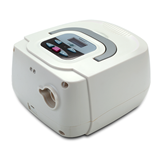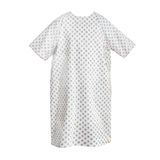Wesley Kington reports exclusively for MedicalSearch…
"Coeliac Australia welcomes this impressive body of work that once again highlights the important role that Australian researchers are playing on the world stage in coeliac disease research," Jane Davies, Executive Officer of Coeliac Victoria and Tasmania told MedicalSearch.
"This new research adds significantly to our understanding of the mechanisms at work in the immune system in people with coeliac disease.
"Our hope is that a vaccine will one day allow coeliac patients to return to a normal gluten-containing diet without any adverse health effects."
Endemic and widely known throughout the community, coeliac disease up until recently largely remained a mystery to medical research, where the ingestion of gluten found in wheat, rye, barley and oats wreaks damage on the digestive system and limits nutrient absorption.
Coeliac disease is an autoimmune response, where T cells mistake gluten as a toxic and foreign substance which must be acted against. As a result, patients often experience pain and discomfort, coupled with chronic constipation, diarrhoea, a failure to thrive (in infants), and fatigue.
Earlier this year, a team of international researchers made a breakthrough by uncovering the "toxin" responsible for triggering the body's abnormal immune response to gluten in those affected. Scientists from Monash University, the University of Melbourne and Leiden University in the Netherlands used studies conducted at the Australian Synchrotron to discover this molecular 'docking' mechanism.
Whilst the discovery is a first – albeit important – step forward for both science as well as coeliac patients, in the meantime there is a wealth of resources on hand to make life easier for those having to deal with the disease day by day.
A luxury vs a necessity
"One in 70 Australians has coeliac disease and once diagnosed, the only treatment presently is a strict gluten-free diet for life," Davies said.
"The gluten-free diet is restrictive and expensive and many people find it difficult to maintain.
"There is no government support at this time for those diagnosed with coeliac disease, unlike some countries where subsidies for gluten-free food staples and support in attending extra medical appointments are provided.
"For those with the disease, though our diet can consist of naturally gluten-free foods, the flours to make our bread and pasta are slightly more expensive."
Davies said coeliac organisations exist for patients to access a variety of tools and resources, and be able to educate themselves on how to sustain a reasonably normal way of life.
"Coeliac organisations have a membership service to support those diagnosed, which includes tools and resources to get them started on a gluten-free diet," she said.
"We recommend people with coeliac disease join for support rather than relying on information on the internet which is not always correct or refers to standards from other countries.
"We are very lucky here in Australia that more and more restaurants are offering gluten-free options, and the number of gluten-free food alternatives produced by Australian manufacturers is on the rise.
"Until people with coeliac disease can eat everyday foods like normal bread, pasta and treats, our organisation would like to see manufacturers and caterers to consider ways of formulating their products to be gluten-free by ingredient.
"This may be achieved by making small ingredient substitutions such as replacing corn flour from wheat, with corn flour from maize as a thickener or for dusting moulds."







-160x160-state_article-rel-cat.png)








